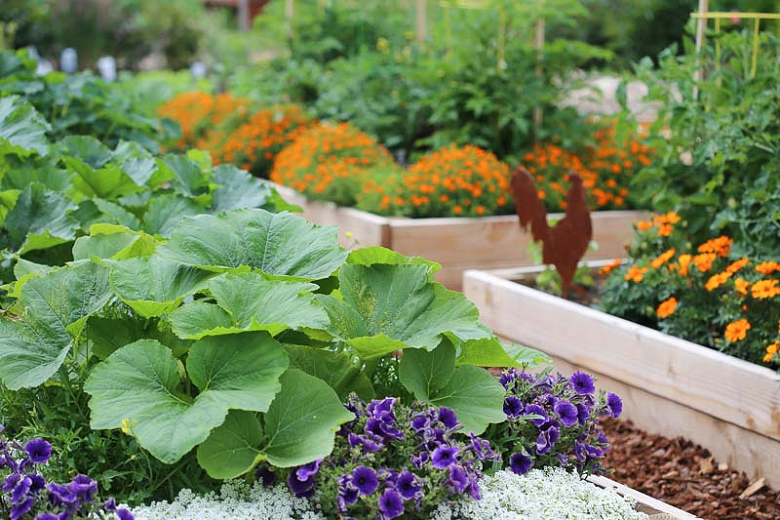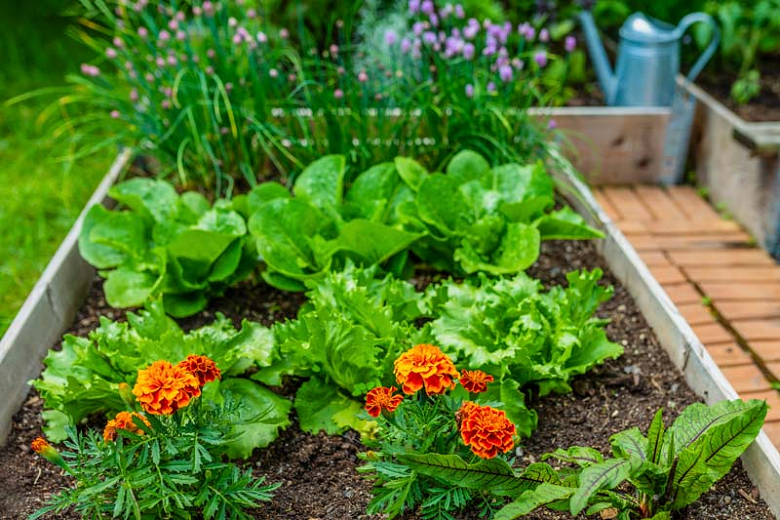Alyssum: The Secret Weapon For Growing Vegetables
Alyssum: The Secret Weapon for Growing Vegetables
Alyssum is a beautiful, low-maintenance flower that is often overlooked by gardeners. However, this unassuming plant has some surprising benefits that can help you grow healthier and more productive vegetables.
In this blog post, we will discuss the many ways that alyssum can help your vegetable garden. We will also provide tips on how to grow and care for alyssum so that you can reap all of its benefits.
The Benefits of Alyssum for Vegetable Gardens
Alyssum has several benefits that can make it a valuable addition to any vegetable garden. These benefits include:
- Attracts beneficial insects. Alyssum is a magnet for beneficial insects, such as pollinators and predators of pests. This can help to keep your vegetable garden pest-free and productive.
- Improves soil quality. Alyssum's roots help to improve the drainage and aeration of the soil, which can make it more hospitable for vegetables.
- Suppresses weeds. Alyssum's dense growth can help to suppress weeds, which can free up your time and energy for other tasks.
- Adds beauty to your garden. Alyssum's bright flowers add a touch of beauty to any vegetable garden.
How to Grow and Care for Alyssum
Alyssum is a relatively easy plant to grow. It prefers full sun but can tolerate partial shade. It is also drought-tolerant and does not require a lot of fertilizer.
To plant alyssum, sow the seeds directly in the garden in early spring. The seeds will germinate in about 2-3 days. Alyssum can also be grown from seedlings.
Once alyssum is established, it is a low-maintenance plant. Water it regularly during dry periods, but do not overwater. Fertilize it once a month with a balanced fertilizer.
Alyssum will bloom from spring to fall. To prolong the blooming period, deadhead the flowers regularly.
Conclusion
Alyssum is a valuable addition to any vegetable garden. It attracts beneficial insects, improves soil quality, suppresses weeds, and adds beauty. If you are looking for a low-maintenance plant that can help your vegetables thrive, alyssum is a great choice.
Alyssum is a beautiful and versatile flower that can add a touch of color and fragrance to any garden. But did you know that alyssum can also be a beneficial companion plant for vegetables?
Alyssum attracts beneficial insects, such as ladybugs and hoverflies, which help to control pests. It also helps to suppress weeds and improve the drainage of soil.
Some of the best vegetables to plant with alyssum include broccoli, cabbage, eggplant, lettuce, and peppers. These vegetables benefit from the insect-attracting properties of alyssum, and they also help to shade the soil, which helps to keep it cool.
If you're looking for a way to improve your vegetable garden, consider planting alyssum as a companion plant. You'll be rewarded with a healthier garden and a more beautiful landscape.
For more information about alyssum companion plants vegetables, please visit Gardenia Inspiration.
FAQ of alyssum companion plants vegetables
1. What are the best companion plants for alyssum?
Alyssum is a great companion plant for many vegetables, including tomatoes, peppers, cucumbers, beans, and peas. It attracts pollinators, such as bees and butterflies, which help to pollinate these vegetables. Alyssum also helps to suppress weeds and improve the soil quality.
Some specific companion plants for alyssum include:
- Tomatoes: Alyssum helps to deter tomato hornworms and other pests.
- Peppers: Alyssum helps to improve the flavor of peppers.
- Cucumbers: Alyssum helps to repel cucumber beetles.
- Beans: Alyssum helps to improve the nitrogen content of the soil, which benefits beans.
- Peas: Alyssum helps to deter aphids and other pests.
2. What are the benefits of companion planting with alyssum?
There are many benefits to companion planting with alyssum, including:
- Attracting pollinators: Alyssum is a magnet for pollinators, such as bees and butterflies. These pollinators help to pollinate vegetables, which results in a better harvest.
- Suppressing weeds: Alyssum helps to suppress weeds by shading the soil and competing with weeds for water and nutrients.
- Improving soil quality: Alyssum helps to improve soil quality by adding organic matter and nitrogen to the soil.
- Reducing pests: Alyssum can help to repel pests, such as tomato hornworms and cucumber beetles.
3. How do I plant alyssum with vegetables?
Alyssum can be planted with vegetables in a variety of ways, including:
- Interplanting: Alyssum can be interplanted with vegetables, meaning that it is planted between rows of vegetables. This helps to deter pests and improve pollination.
- Border planting: Alyssum can be planted as a border around a vegetable garden. This helps to attract pollinators and suppress weeds.
- Container planting: Alyssum can also be planted in containers with vegetables. This is a good option if you have limited space.
4. What are the best growing conditions for alyssum?
Alyssum prefers full sun and well-drained soil. It is a relatively drought-tolerant plant, but it does benefit from regular watering. Alyssum is hardy in USDA zones 4-9.
5. How do I start alyssum?
Alyssum can be started from seeds or transplants. If you are starting from seeds, sow them directly in the garden in early spring. If you are using transplants, plant them in the garden after the last frost.
Image of alyssum companion plants vegetables
5 different images of "alyssum companion plants vegetables" from pinterest.com:
- Image 1: Alyssum and tomatoes. Alyssum is a good companion plant for tomatoes because it helps to deter pests and attract pollinators.

- Image 2: Alyssum and peppers. Alyssum also helps to deter pests from peppers, and its sweet scent can help to mask the smell of peppers, which can attract pests.

- Image 3: Alyssum and carrots. Alyssum helps to improve the flavor of carrots, and it can also help to deter carrot rust flies.

- Image 4: Alyssum and lettuce. Alyssum helps to deter aphids and other pests from lettuce, and its sweet scent can attract pollinators.

- Image 5: Alyssum and beans. Alyssum helps to improve the nitrogen content of the soil for beans, and it can also help to deter bean beetles.

Post a Comment for "Alyssum: The Secret Weapon For Growing Vegetables"